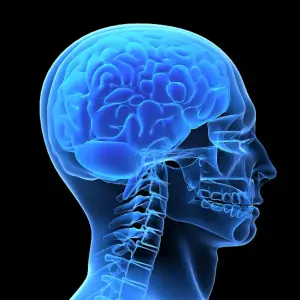 Neurosurgery is undoubtedly one of the most complex, most demanding yet also most rewarding areas of medicine, and neurosurgery physician assistants (also referred to as neurosurgical PAs) are skilled professionals who work in collaboration with one or more supervising neurosurgeons. The duties and responsibilities of a neurosurgical physician assistant are well-defined: these health care professionals need to take the medical histories of patients before admitting them to the operating room, they must perform thorough physical examinations, order and interpret laboratory results, make diagnoses, discuss and implement inpatient and outpatient treatments and so on. The exact duties of these health care providers are somehow dictated by their work environment – for example, neurosurgical physician assistants who work in hospitals have a series of typical duties that they need to complete here, such as closing the wounds at the end of the surgery, ordering and interpreting various scans and tests such as CT scans and MRIs, and making hospital rounds whenever needed.
Neurosurgery is undoubtedly one of the most complex, most demanding yet also most rewarding areas of medicine, and neurosurgery physician assistants (also referred to as neurosurgical PAs) are skilled professionals who work in collaboration with one or more supervising neurosurgeons. The duties and responsibilities of a neurosurgical physician assistant are well-defined: these health care professionals need to take the medical histories of patients before admitting them to the operating room, they must perform thorough physical examinations, order and interpret laboratory results, make diagnoses, discuss and implement inpatient and outpatient treatments and so on. The exact duties of these health care providers are somehow dictated by their work environment – for example, neurosurgical physician assistants who work in hospitals have a series of typical duties that they need to complete here, such as closing the wounds at the end of the surgery, ordering and interpreting various scans and tests such as CT scans and MRIs, and making hospital rounds whenever needed.
How To Become A Neurosurgery Physician Assistant
It is important to say that training for becoming a neurosurgery PA starts even from high school, if you are still in high school but you are absolutely sure that this is the career path you want to follow. Having said that, it is important to mention that each PA training program has its own rules and regulations, but most of the time the physician assistant programs require you to complete additional college courses in four of the most important topics for your future career: English, math, biology as well as chemistry. Some courses in physics and science may be required as well.
Becoming a neurological physician assistant is not as easy as it may sound, as these health care professionals usually have a Master’s degree in the field. Nonetheless, it must be said that all physician assistants regardless of the medical specialty they will opt for later on will have to follow the same career path, to a point. That being said, it is important for every future neurosurgery PA to firstly complete an ARC-PA approved physician assistant training program and then to pass the PANCE examination, or the Physician Assistant National Certifying Examination. In addition to this, if you have decided to pursue a lucrative career in neurosurgery, then you will need to complete 100 hours of continuing medical education every two years, and to pass the recertification examination once every 10 years in order to keep your physician assistant license active. Moreover, your training will also require you to complete at least one year of practical, on the job training in the field of neurosurgery assisting – in the end, it is the practical experience that will set you aside from the rest of the physician assistants.

Working as a neurosurgery PA can be very exciting and challenging at the same time, but formal training is an aspect of utmost importance – no matter if you opt for a postgraduate program or a residency program in neurosurgery after you graduate from the accredited PA training program, it is very important to carefully inspect the didactic as well as the clinical curriculum of the specialization program you have opted for. At the end of your training period, you can apply for the CAQ, or the Certificate of Added Qualifications which will show that you have all the necessary theoretical and practical training that is required in order to activate as a physician assistant in the neurosurgery field. The Certificate of Added Qualifications is offered by the same institution that administers the PANCE examination –the NCCPA.
The residency period is undoubtedly the most important period in all the formal training of every neurosurgical physician assistant – neurosurgery is, as mentioned above, a very complex field and the residency period will offer you a deeper insight into a variety of neurological conditions and surgical interventions. You will get the chance to assist neurosurgeons in the operating room, you will become familiar with the surgical instruments and the surgical techniques that are used for treating some of the most dangerous neurological conditions, you will witness a brain surgery and you will get to develop collaborative and beneficial professional relationships not just with your supervising neurosurgeon, but also with all the other members of the medical team.

